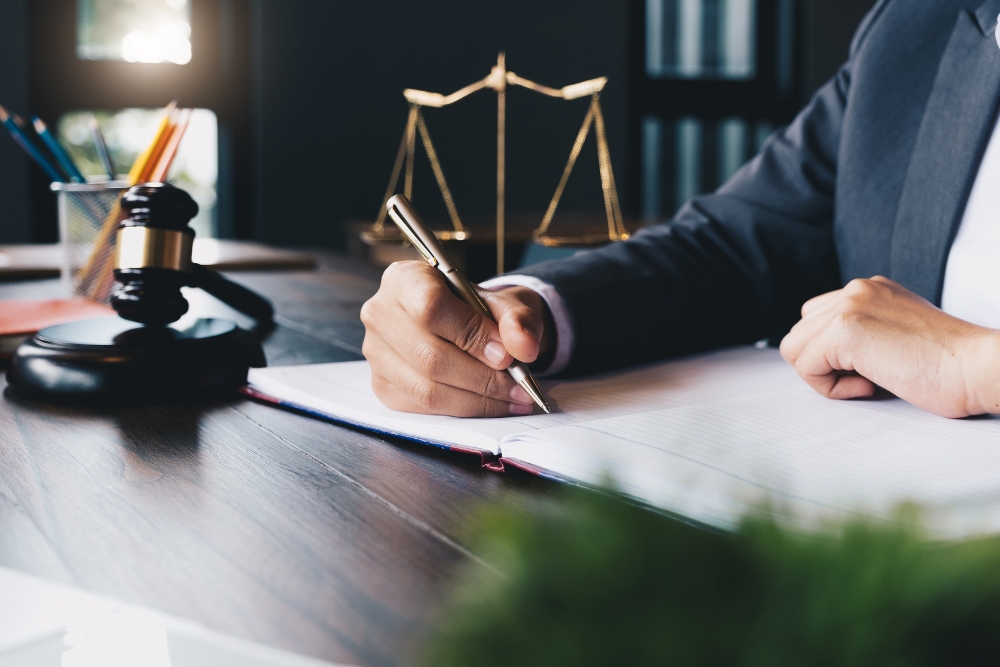
One of the most common questions which I get, when a stranger finds out that I practised and taught law is, “Should I write a will?“
Often they regale me with stories about how they lost all their loved ones’ assets to the government because these hapless deceased did not make a will.
That is utter nonsense if the statement is about the deceased’s assets in Singapore because here, the Intestate Succession Act 1967 would take care of this situation.
The act makes provision for the distribution of assets when a person dies without a will (more below).
From other statements and questions, I noticed that a lot of folks are quite clueless about writing wills, and hence this article answers some of the most common questions that arise from executing (or not executing) a valid will which should reflect the testator (the person who writes the will)’s wishes.
Advertisement
Is the government entitled to the assets of the deceased who does not leave a valid will?

Even if a person dies without leaving a valid will, or if there are assets which are not covered under the will, clause 7 of the Intestate Succession Act sets forth rules for the distribution of:
- All the movable and immovable properties of a person domiciled in Singapore and
- All the immovable properties of a person not domiciled in Singapore.
(Note that the Intestate Succession Act does not apply to Muslims as they are covered under faraid, the Muslim intestate law. This is administered by Singapore’s Syariah Court.)
If the deceased has a surviving spouse or descendants (children, grandchildren, great grandchildren, etc), parents or grandparents, the assets of the deceased which form the Estate of the deceased, will, in part or whole, be distributed to them.
However, even if the deceased does not have such a direct immediate family, Rules 6 to 8 allow the more remote relatives of the intestate deceased to inherit his/her estate. These include siblings and their children ie nieces and nephews, as well as the aunts and uncles of the deceased.
It is only when the deceased does not have any relatives that the Government shall be entitled to his or her Estate.
Since the Intestate Succession Act 1967 covers the distribution of assets, why should we write a will?
It is important to write a will, especially under these circumstances:
- It is not your intention to distribute your assets following the "hierarchy" listed in the rules under the Intestate Succession Act. For example, the rules state that if you have no descendants but a surviving spouse and parents, your estate will be divided between your spouse and your parents. However, if you prefer your whole estate to go only to your surviving spouse, then a will is necessary.
- It is not your intention to distribute your assets in the proportion as stated under the Act. For example, the rules state that if you have no descendants but a surviving spouse and parents, your spouse will get 50 percent of your Estate and your parents will share the other 50 percent. However, if you prefer 80 percent to go to your surviving spouse, then that can be stated in your will.
- You may want to make provision for a "survivorship" clause. For example, in the event that a child predeceases you, you may want his/her portion of your assets to be passed down to his/her children (your grandchildren), and not shared among your other surviving children.
- You wish to specifically appoint a personal representative to administer your estate and/or Guardian for those in your care.
- You wish to bequeath part or all of your estate to parties who are not your next of kin or descendants such as friends, helpers, charities, pets and/or religious or other organisations.
- You wish to insert conditions to specific bequests. For example, you may want to insert a clause that all the persons to whom you have bequeathed your assets must attend your funeral. Such conditions are generally not encouraged, as any ambiguities can sometimes render the condition void and create issues. However, definite, reasonable, clear and legal conditions which are possible to be carried out, will not be ignored.
These are but a few of the reasons why it is important to make a will.
Do we always need a lawyer to write a will?

Wills are not the exclusive domain of lawyers and one can even write your own will. However, years of encountering disputes which could be avoided by a properly drafted will make me skeptical that anyone other than one who is legally trained should be trusted to draft a will.
Lawyers do not just know how to make a will, but legal training and experience exposes us to the many ramifications of the clauses in a will which are not obvious to a layman. You can raise any questions or doubts to be addressed so that you can be clear about your will.
One recent experience highlighted how dangerous a little knowledge can be: A friend who was not legally trained used a template for writing wills to help a married male friend with a child, both of whom are estranged from the wife, to write a will. She just added in the child’s name into the will template since her friend did not intend to give anything to his wife.
However, not mentioning the wife in this case (or surviving children, in other cases) gives an opening for a legal widow and/or children to challenge the will on the basis that unintentional omission does not reflect the testator’s wishes or a lack of mental capacity or undue influence and/or all of the above.
In any event, dependents, including wives and children, can apply to the court for an order for reasonable provision for maintenance.
What would have been better would be to make specific mention showing that the testator had his/her spouse and/or children in mind when he/she made the will but did not want to give them more than what was stated in the will.
Generally, when drafting a will, the lawyer will obtain details of the testator’s spouse and/or children. In cases when the testator instructs that he/she wishes to exclude a surviving spouse and/or child from a share in his/her estate, clauses will be included to take note of this, with at least a token sum bequeathed to them in the will.
Furthermore, reasons for any disparity such as “we have long been separated and she has lived independently” or “the said son/ daughter has been sufficiently provided for during my lifetime” can be included to make his/her intentions loud and clear.
Is it always necessary to make a will?
When one only has assets which can automatically pass on to the surviving joint owner/ account holder, such as property that is held in joint tenancy and bank accounts, then it may not be as crucial to have a will, since the survivor will be entitled to everything, with nothing for the deceased to pass down to others.
Are there any limitations to whom (person, animal or entity) I can give my assets to?
No, but the Inheritance (Family Provision) Act 1966 can empower a court of law to make payments from the net estate of the deceased for the benefit of a surviving spouse or child who is deemed to be a dependent and to make reasonable provision from his/her estate.
How can I "ironclad" my will?
Any “aggrieved” parties who may consider themselves rightful beneficiaries has a right to commence legal action to declare a will invalid and for the court to decide as to the distribution of the estate.
But the legal principle that a testator has full autonomy on how to dispose of his/her estate prevails, and the court will not invalidate a will merely because of unfair distribution.
In such cases, it is even more important that there is no room for doubt. If procedures required to validate the testator’s will are complied with, and the testator was mentally competent at the time of making the will, with no undue influence or fraud by any party whatsoever can be proven, the will clauses will be upheld.
So long as the will is valid, it will be deemed to express the wishes of the testator. However, as further “insurance” and to highlight his/her intentions, the testator should give at least a token sum to his/her legal spouse and children, stating the reasons for such bequests.
What if any of the beneficiaries of my will die before me?

This is why it is so important to make provisions for any potential changes when making a will. Since there can be a possibility, however remote, of an unexpected death, it is possible to draft the will to include who would stand in the place of any beneficiary should they predecease the testator.
For example, if any of the children predecease the testator, he/she can provide for their share to go either to the remaining children or to the estate of the deceased child or specifically, his/her children only (the testator’s grandchildren).
Similarly, when the testator is single, it may be his/her wish to pass the share of his/her siblings to his niece/nephew instead of this being shared only amongst the remaining siblings who have survived him/her.
Should I bequeath assets or percentages of my estate to specific parties?
Whilst the will can be drafted to provide for either, the testator may forget to make a new will when he/she disposes of an asset, thus depriving certain beneficiaries of a share in his/her estate.
There are also disadvantages to tying the Estate to percentages. Bear in mind that with percentages, the burden will be on your administrator/trustee to give an account to all beneficiaries of everything in your estate, and the beneficiaries are entitled to hold your administrator/trustee for all and any of it.
For example, where a testator gives 10 percent of his/her estate to charity, then an account of the whole estate will have to be given the charity.
Thus, where percentages are mentioned, it may be better to tie the percentage to a specific asset, for example, giving 10 percent of whatever is in a specific bank account, rather than to one’s estate as a whole.
Further, giving percentages means that some or all of the assets in your estate would have to be sold and the proceeds realised in order for your executor/trustee to carry out the distribution provided for in your will.
Can I bequeath my HDB flat in my will?

The first thing to establish is the holding type, ie whether your HDB flat is held in joint tenancy or tenancy-in-common. If it is held in joint tenancy, the joint tenancy will “override” any will and the surviving lessee of the HDB flat will take all. If it is held in tenancy-in-common, then you can provide for the distribution of your share.
However, all HDB flats are subject to prevailing rules and regulations and eligibility requirements imposed by HDB.
If for any reason, the proposed owners are not eligible, for example, they may already own another HDB flat or private property, then the flat will have to be sold and the proceeds distributed according to the will or Intestate Succession Act.
Proposed owners (ie beneficiaries named under the will) must physically occupy the HDB flat upon change of ownership.
Can I state in my will that anyone who is related to me but is not a co-owner will stay in my HDB flat upon my death?
Unfortunately, once a sole owner or co-owner passes away, their interest will have to be distributed in accordance with the will or the Intestate Succession Act. Any will provision will still be subject to HDB rules and regulations including those relating to eligibility.
Some points to note
Whilst your will may not meet the expectations of everyone, making it non-ambiguous prevents disputes and challenges which may end up in long-drawn and expensive court cases.
Remember to periodically examine your will especially if you have multiple assets and investments being bought and sold, as this may require changes in the will particularly where certain assets are to be bequeathed to specific parties.
Keep a full list of your assets updated, including property, stocks, shares, insurance policies, bank accounts and other holdings in as much detail as possible so that your executor/trustee will have an easier task of instructing the probate lawyer.
Inform your named executor and if you are comfortable with that, even one or more of your beneficiaries where your will is kept and the name of the lawyer/law firm that prepared your will.
If you have any doubt about asset distribution or any other matters relating to your will or estate, do consult a lawyer.
I hope that this article has addressed potential problems with wills that are not specific. A valid will can be your voice instructing a trusted appointee how you wish your assets handled upon death.






